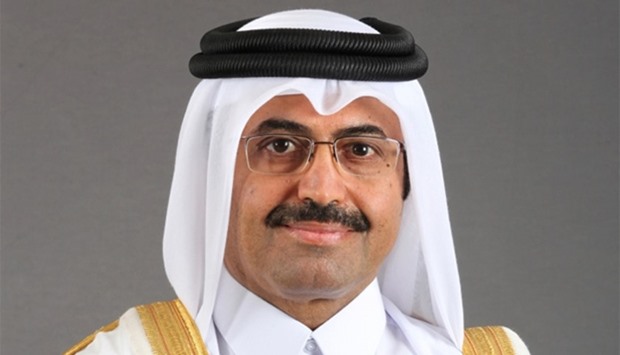HE the Minister of Energy and Industry and current Opec president Dr Mohamed bin Saleh al-Sada has said the “oil market was on the right track towards rebalancing in the second half of 2016.”
"As we proceed to the second quarter of the year, we see an increase in global demand for oil due to demand for oil products, particularly gasoline," he said in a statement on Tuesday.
"This trend is likely to increase further from next month due to the onset of the summer driving season."
Al-Sada said world oil supply was declining because of the closure of high-cost production facilities and declining numbers of drilling rigs in operation, which was leading to a fall in production.
"The current level of oil prices is the main reason for the lack of investment in the oil industry," he said.
Opec ministers are set to meet on June 2 in Vienna to review the oil market situation.
“Member countries will review closely the oil market situation along with current and future dynamics of oil supply and demand,” al-Sada said.
According to Samba Financial Group, oil prices are expected to climb to an average of $60 for barrel in 2017 from $40 this year, reaching almost $80 by 2020, but noted prices will remain “volatile,” especially given the “elasticity” of US shale supply.
In view of greater oil consumption in China, India and the US, the demand will outstrip supply this year for the first time since 2013, Samba said.
“This does not mean that prices will suddenly shoot up; it will take some time for the large overhang of stocks to be worked down,” Samba said in its latest report.
In a recent report Bank of America Merrill Lynch (BofA Merrill Lynch) said global oil output was now set to show a year-on-year (y-o-y) contraction and noted that this supports its view that oil will trade above $60 a barrel in 2017.
BofA Merrill Lynch also said there was still a large set of drilled but uncompleted shale wells that could come on stream over the next few months and that it surely expected US companies to play a role in stabilising non-Opec supplies.
However, cartelised producers at the moment have limited spare productive capacity or planned investment to meet demand on a forward basis, leaving the oil market exposed to huge supply uncertainties over the next five years, it said.

HE al-Sada says the oil market is on the u201cright tracku201d
